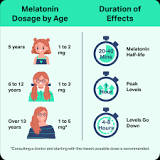The Importance of Counseling in Mental Health
Counseling plays a crucial role in supporting individuals facing various mental health challenges. It provides a safe and confidential space for people to explore their thoughts, emotions, and behaviors with a trained professional. Through counseling, individuals can gain insight into their issues, develop coping strategies, and work towards positive change.
One of the key benefits of counseling is the opportunity for individuals to express themselves openly without fear of judgment. Counselors are trained to listen actively and empathetically, offering support and guidance without imposing their own beliefs or opinions. This non-judgmental environment allows clients to explore their feelings and experiences honestly.
Counseling can help individuals navigate difficult life transitions such as relationship problems, job stress, grief, or major life changes. By working with a counselor, clients can gain clarity on their situations, identify underlying issues, and develop effective ways to cope and move forward.
In addition to addressing specific challenges, counseling can also promote self-awareness and personal growth. Through self-exploration and reflection guided by a counselor, individuals can uncover patterns of thinking or behavior that may be holding them back from reaching their full potential.
It’s important to note that counseling is not only beneficial for those experiencing acute mental health issues but can also be valuable for anyone seeking personal development and emotional well-being. Just as we prioritize physical health through exercise and nutrition, taking care of our mental health through counseling is essential for overall wellness.
In conclusion, counseling provides a supportive space for individuals to address mental health concerns, improve self-awareness, develop coping skills, and foster personal growth. If you or someone you know could benefit from counseling services, don’t hesitate to reach out to a qualified counselor who can help guide you on your journey towards better mental health.
7 Benefits of Counseling: From Safe Self-Expression to Enhanced Mental Well-being
- Provides a safe and confidential space for self-expression
- Offers non-judgmental support and empathy
- Helps individuals gain insight into their issues
- Assists in developing effective coping strategies
- Promotes personal growth and self-awareness
- Navigates difficult life transitions with guidance
- Improves mental health and emotional well-being
Examining the Challenges of Counseling: Cost, Time Commitment, and Stigma
Provides a safe and confidential space for self-expression
Counseling offers a valuable pro by providing individuals with a safe and confidential space for self-expression. In this environment, clients can freely share their thoughts, emotions, and experiences without fear of judgment or repercussions. This allows them to explore their innermost feelings honestly and openly, facilitating a deeper understanding of themselves and their challenges. The confidentiality of counseling sessions ensures that clients can trust in the privacy of their discussions, creating a secure space where they can work through issues and make positive changes without reservation.
Offers non-judgmental support and empathy
One significant benefit of counseling is that it provides individuals with a non-judgmental environment where they can openly express their thoughts and feelings without fear of criticism. Counselors offer empathetic support, actively listening to clients’ concerns and providing understanding and compassion. This non-judgmental approach helps individuals feel validated and accepted, fostering a sense of safety and trust that enables them to explore their emotions and experiences more freely.
Helps individuals gain insight into their issues
Counseling serves as a valuable tool in helping individuals gain insight into their issues by providing a safe and supportive environment for self-exploration. Through open and honest discussions with a trained counselor, individuals can uncover underlying emotions, beliefs, and patterns of behavior that contribute to their challenges. This process of self-reflection and exploration enables individuals to develop a deeper understanding of themselves and their circumstances, empowering them to make informed decisions, set meaningful goals, and work towards positive change.
Assists in developing effective coping strategies
Counseling plays a vital role in assisting individuals in developing effective coping strategies to navigate life’s challenges and stressors. Through counseling sessions, individuals can learn healthy ways to manage their emotions, thoughts, and behaviors when faced with difficult situations. Counselors provide valuable guidance and support in helping clients identify triggers, explore alternative perspectives, and practice coping techniques that promote resilience and emotional well-being. By equipping individuals with these tools, counseling empowers them to face adversity with confidence and adaptability.
Promotes personal growth and self-awareness
Counseling offers a valuable opportunity for individuals to cultivate personal growth and deepen their self-awareness. Through introspective exploration guided by a trained counselor, clients can gain insights into their thoughts, emotions, and behaviors. This process of self-discovery allows individuals to identify patterns, beliefs, and obstacles that may be hindering their personal development. By fostering self-awareness and encouraging reflection, counseling empowers individuals to make positive changes, overcome challenges, and strive towards becoming the best version of themselves.
Navigates difficult life transitions with guidance
Counseling offers invaluable support in navigating challenging life transitions by providing individuals with guidance, understanding, and coping strategies to effectively manage and adapt to significant changes. Professional counselors help clients explore their emotions, thoughts, and concerns related to transitions such as relationship issues, career changes, loss, or other major life events. Through this guidance, individuals can gain clarity, resilience, and a sense of empowerment to navigate these transitions with greater confidence and emotional well-being.
Improves mental health and emotional well-being
Counseling offers a valuable opportunity to improve mental health and emotional well-being by providing individuals with a safe and supportive space to explore their thoughts, feelings, and experiences. Through counseling, individuals can gain insight into their emotions, develop coping strategies for managing stress and challenges, and work towards achieving greater overall well-being. By addressing mental health concerns with the guidance of a trained professional, individuals can experience positive changes in their emotional resilience, self-awareness, and ability to navigate life’s ups and downs effectively.
Cost
The cost of counseling can be a significant barrier for many individuals, particularly those without insurance coverage or limited financial resources. The expenses associated with counseling sessions can add up quickly, making it challenging for some people to access the mental health support they need. This financial burden may deter individuals from seeking help or limit the frequency of their sessions, potentially impacting the effectiveness of their treatment. Addressing the issue of affordability in counseling is crucial to ensure that mental health services are accessible to all who require them.
Time commitment
One notable drawback of counseling is the time commitment it demands. Regularly attending counseling sessions can be a challenge for individuals juggling busy schedules and various responsibilities. Finding the time to prioritize mental health and attend sessions consistently may require significant adjustments to one’s daily routine, potentially adding stress to an already hectic lifestyle. This time constraint can deter some individuals from seeking the support they need, highlighting a barrier to accessing mental health care for those with limited availability.
Stigma
Despite efforts to reduce mental health stigma, some individuals still feel ashamed or embarrassed to seek counseling due to societal attitudes and misconceptions. The fear of being judged or labeled as “weak” can prevent people from reaching out for the help they need. This stigma surrounding counseling can perpetuate feelings of isolation and hinder individuals from accessing valuable support and resources. Breaking down these barriers and promoting a culture of acceptance and understanding is essential in ensuring that everyone feels comfortable seeking the mental health care they deserve.




